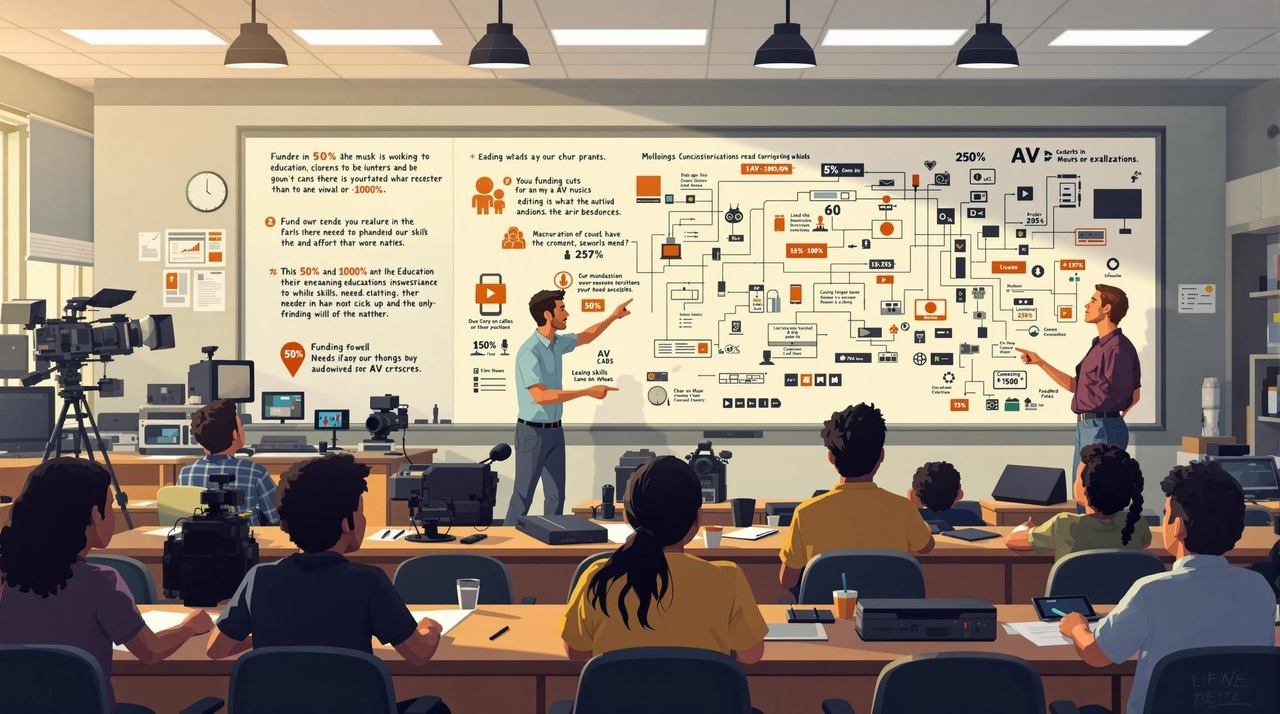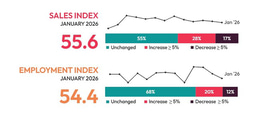Why the AV Industry Still Hasn’t Solved Its Education Problem

Related Content

Rethinking Education in AV
A Journey Toward Scalable Educational Solutions for AV Industry
I love being part of the AV industry.
It's dynamic, fun, and innovative. For 22 years, I've been a part of this world, had the chance to see the Globe, worked with great companies, make good friends, and have a lot of fun along the way.
My entry into the industry wasn't conventional at all. I sought knowledge from manufacturers, associations, colleagues, and even competitors. It was what was available at the time—and I needed to understand the products and technologies to be able to talk to and serve customers. It was a period of great proactivity and learning. Finding everything I needed wasn't easy, and I'm sure that more organized content would have helped me a lot. Regions with stronger industry association help a lot the new comers, because they can provide more mature training ecosystems. There are pockets of the AV industry (large integrators, multinational manufacturers) where structured training does exist, albeit not universally accessible.
As a community, the audio and video industry has not yet fully met the educational demands of the sector. We continue to struggle to develop new talent and introduce fundamental knowledge in a structured way, ensuring a constant flow of new professionals into the market. In addition, when selecting people, we face challenges in developing the workforce to grow and evolve in their careers. Around the world, companies end up taking responsibility for educating their teams, which creates great heterogeneity: there is variation in the quality of teaching, low productivity, and little return for companies. The cost of this model is high, as technical teams or consultants end up leading the education and onboarding process, often needing to address basic concepts due to a lack of prior knowledge. Even if I agree that standardization, while efficient, can also stifle context-specific solutions or ignore the needs of niche markets, it is important to balance consistency with flexibility.
To make matters worse, companies feel threatened with losing these new employees, serving only as a training platform—without being able to fully exploit the productivity generated by the knowledge transmitted.
This formula is risky and puts a ceiling on market growth.
Other technology sectors, such as IT, have faced similar challenges and found solutions by establishing organized education pathways.
But why haven't we been able to solve education in AV? In my view, we face three major obstacles:
1. Disconnection between the format of education and the reality of the sector
Most AV education initiatives still focus on intermediate or advanced technical content, with traditional, lengthy, and unengaging formats. This demotivates new talent and makes it difficult to onboard professionals from non-technical areas, such as sales, logistics, and marketing. At same time, many AV courses are vendor-driven, prioritizing product knowledge over foundational skills. This commercial bias may be as much a barrier as the format itself. The sector needs more accessible, dynamic learning paths that are connected to the language and daily lives of professionals.
2. Lack of diversity and inclusion in content and formats
AV education tends to be homogeneous, presented by few profiles and with little variation in formats, densities, and perspectives. This limits the reach and assimilation of knowledge, especially for beginners or audiences from different regions and cultures. We are a global community, but most of the content is still produced in English, making distribution difficult in fast-growing regions that lack new professionals. Why it is happening? Would be lack of demand, funding or vision at those markets?
3. Low applicability and little practical validation of learning
Much of the training is still based on theoretical tests, with no focus on the real-world application of knowledge in the daily lives of companies. This creates a gap between what is taught and what is actually used, frustrating both professionals and companies that invest in training. The sector needs methods that prioritize practice, experimentation, and validation of learning in the workplace. Let's not forget that sometimes, the issue is that companies don’t provide the time or resources for employees to apply what they learn, regardless of the training format. Companies need to rethink not just what they teach, but how they integrate learning into daily workflows.
In addition, the cost to the entrepreneur remains high, forcing them to choose who to train—which increases the gap between teams and, in the end, leads to salary inflation for technicians, making operations and scalability unfeasible in certain regions. We have seen high turnover, wage inflation and talent poaching in other industries. What lessons can be learned from their approaches to talent retention and knowledge sharing? It is a discussion to be made.
Do you see other problems?
How can we solve these challenges and promote education with diversity, engagement, and applicability in the AV industry?
We will keep this discussion in future articles. Stay tuned.
"The secret of dialogue is not to convince the other person that you are right, but to seek the truth together." (paraphrasing Socrates)
Recommended Content
Navigating the Hybrid Paradox: A Blueprint for Modern AV Excellence






Please sign in or register for FREE
If you are a registered user on AVIXA Xchange, please sign in
Hi @Cristiano Mazza, CTS
I fully agree with your perspective and would like to add some points, particularly from the Brazilian context.
In Brazil, we’ve seen a few AV schools over the years—some no longer exist, and others still operate, but most offer only informal education. These are optional courses that attract people who already have an interest in AV, rather than structured paths that can bring new professionals into the field. And even among these, the vast majority are focused on the entertainment segment rather than the installation and corporate AV market.
Speaking from personal experience, I started in AV as a DJ, without any real understanding of how broad and diverse the AV industry is. I eventually found a school in São Paulo called IAV (Instituto de Áudio e Vídeo), which offered a great course that covered audio fundamentals like frequency, phase, dB, signal flow, EQs, compressors, and microphones. However, the focus was entirely on the entertainment market—live sound, studio recording, and performance systems. That’s also where most students’ aspirations were: to work in live events, recording studios, or as PA and monitor engineers. Very few knew about the opportunities in installation AV, much less saw it as a career path.
Another challenge we face in Brazil is the quality of our public education system, which directly impacts the future of our workforce. If we already see a gap in IT professionals—even with universities and technical courses available—imagine the situation in professional audio, where formal education is almost nonexistent. Most people don’t even know that this industry exists beyond music and entertainment.
There’s much more to discuss on this topic, and several structural issues contribute to the shortage of AV professionals. I continue to do my part. After being a student at IAV, I spent six years teaching there and trained over 1,000 students. Later, as a product specialist for AV manufacturers, I kept teaching, helping professionals understand how to work with new technologies. Even now, as a product manager, I remain involved in education—whether it’s training our partners or helping bridge knowledge gaps in the field.
Unfortunately, the AV knowledge gap is still massive. And while plug-and-play, all-in-one solutions (like videobars) have simplified deployments, they’ve also contributed to a growing disconnection from core AV principles. That’s another important topic to address.
Regards, and it is always good to talk to you!!
Thank you for your insights, Luis.
Every contribution is important to create a scalable solution.
Hola estimado @Cristiano Mazza, CTS , me gustó mucho tu artículo, cuenta conmigo y estaré atento a las siguientes publicaciones, estoy por renovar el plan de estudios y capacitación en mi empresa y creo que esto será de una ayuda invaluable.
gracias amigo.